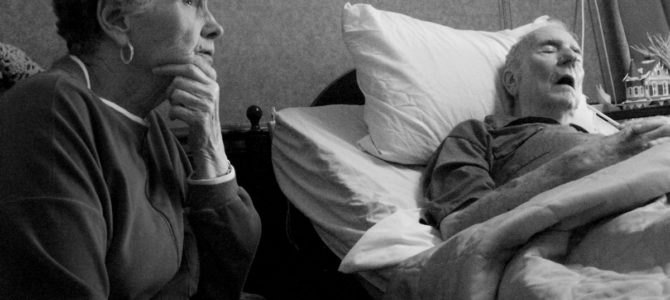Physician-assisted suicide continues to grow around the world and in the United States. Thursday, Hawaii Gov. David Ige signed the “Our Care, Our Choice Act” (HB 2739), that establishes a state-sanctioned system for physician-assisted suicide.
Hawaii is now the seventh U.S. jurisdiction to make physician-assisted suicide legal. The other six are Oregon, Vermont, Washington, California, Colorado, and the District of Columbia. It’s also an option in Montana via court order. Just this week, Rhode Island’s House Committee on Health, Education, and Welfare considered H 7297, which would also make physician-assisted suicide legal.
Hawaii’s law, which will take effect next year, includes several hoops those requesting doctor-induced suicide must jump. According to Reuters, “The measure would allow doctors to prescribe life-ending medication at the request of patients, so long as two doctors deem the patient mentally competent and determine that the individual has no longer than six months to live.”
There must be written testimony from two witnesses who can verify the patient not only wants to die but can take the lethal drugs on his or her own. Similar legislation came up for a vote in Hawaii in 2002 but did not pass. “We have gotten to a point in our community that it does make sense to give the patient a choice to request the medication, obtain it and take it, or ultimately change their mind if they so choose to,” Ige said.
Every state where self-murder is legal differs a bit in how it’s regulated. In Colorado, several conditions must be met: The person requesting medical suicide must be terminally ill, with a prognosis of six months or less to live. In California and the District of Columbia, patients must make several requests within a certain time frame, both orally and in written form.
The specific method for legalized self-murder in each state varies, but usually involves a prescription from a physician licensed by the state in which the patient is a resident. While often only an M.D. or a D.O. can prescribe the medication, they do not have to otherwise participate.
One of the most well-known cases of physician-assisted suicide in recent years was that of Brittany Maynard, who was 29 years old when she ended her life. Maynard had been diagnosed with terminal brain cancer, and moved from California to Oregon to take advantage of their legalized suicide law. Because of her young age, she garnered a large following. After she ended her life, California Gov. Jerry Brown signed into law the End of Life Option Act, which legalized doctor-assisted self-murder for Californians with terminal illnesses.
Advocates of physician-assisted suicide view Hawaii’s law—and Rhode Island’s debate—as a victory, especially since the New York Supreme Court upheld a ban on the practice last fall. Surprisingly, the general public seems to support the policy. According to a Gallup poll last June, 73 percent of Americans say “a doctor should be allowed to end a terminally ill patient’s life by painless means if the patient requests it.”
“As we’ve seen in Connecticut and Massachusetts among others, opposition cuts across party lines and is often led by disability and elder care organizations…Despite Hawaii’s recent passage, the vast majority of states remain firmly opposed,” said Bradley Kehr, counsel for Americans United for Life, in a statement. Kehr testified in front of Rhode Island’s House Committee on Health, Education, and Welfare on their self-murder legislation.
In 2016, a study by the Perelman School of Medicine at the University of Pennsylvania found that “[d]espite increasing legalization of euthanasia and physician-assisted suicide (PAS) worldwide, the practice remains relatively rare…”
Despite Hawaii’s legislation and Rhode Island’s hearings, physician-assisted suicide is not gaining ground quickly in the United States. Last year, physician-assisted suicide bills were introduced in 27 other states and failed to make it to votes.
The American Medical Association opposes euthanasia laws. As a former resident of Hawaii and attorney said in written testimony to the Hawaii State Senate, such legislation—even the concept alone—“erodes the integrity and ethics of the medical community,” and disrupts the moral responsibility we have to the sick and aged.









